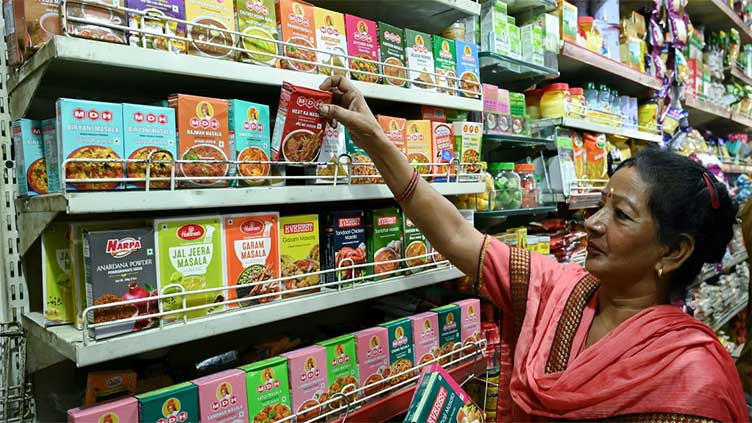Indian spice brands with millions of consumers across world probed over pesticides in mixes

Business
Growing global scrutiny of Indian spices may hit country’s spice export industry
(Web Desk) - Indian spice brands with millions of consumers across world investigated over pesticides in mixes.
Batches of MDH and Everest spices found to contain cancer-causing ethylene oxide.
Indian spice exporters are being investigated after tests revealed elevated levels of cancer-causing pesticides in their products, sparking concern among global food regulators.
The Spices Board, India’s main regulator for spice exports, said it has begun conducting inspections at processing and manufacturing plants belonging to MDH and Everest, two leading brands.
The investigation comes over a month after Hong Kong suspended the sale of three spice blends produced by MDH and one by Everest, saying they contained high levels of a carcinogenic pesticide named ethylene oxide.
Singapore ordered a recall of an Everest mix, while New Zealand, Australia and the United States said they are looking into complaints about the two brands.
Britain’s food watchdog has applied extra control measures to all spice imports from India, the Food Standards Agency said last Wednesday.
“We have conducted three consultations with the industry,” a senior Spices Board official was quoted as saying by the Mint newspaper, adding that the industry is taking a serious approach to the matter.
A report on Tuesday in the Financial Express said that initial testing by Indian officials found no evidence of ethylene oxide in MDH spices but that “in the case of Everest, some of the samples (out of 12) were non-compliant”.
“We have told them to take corrective actions and we are working with them to ensure that they are compliant,” the unnamed official said.
The two Indian companies have said their products are safe for consumption, with MDH denying it uses any ethylene oxide in its spice mixes.
“We reassure our buyers and consumers that we do not use ethylene oxide at any stage of storing, processing, or packing our spices,” it said, according to NDTV. The Independent has contacted Everest for comment.
Ethylene oxide, which is generally used as a disinfectant, sterilising agent and insecticide to reduce microbial contamination, is considered carcinogenic beyond permissible limits.
This limit is not standardised around the world, however.
Hong Kong completely prohibits the use of ethylene oxide in food, while the European Union limits its usage to 0.1mg per kg.
The US Environmental Protection Agency says regular exposure to ethylene oxide over many years raises the risk of cancers, including non-Hodgkin’s lymphoma, myeloma and lymphocytic leukaemia, and breast cancer.
Growing global scrutiny of Indian spices has caused concern about the risk posed to the country’s spice export industry, which according to the Spices Board was worth $4bn in 2022-23.
The Global Trade Research Initiative, a think tank in New Delhi, estimates that it is likely to impact more than half of all overseas orders.


